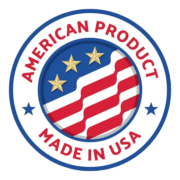BFRP Composite Rebar
BFRP Basalt Fiber Reinforced Polymer Rebar
Sustainable, rust-proof alternative to traditional steel reinforcement
BFRP Basalt Fiber Reinforced Polymer Rebar is 25% of the weight of steel and has a Specific Tensile Strength that is 2.5 times greater. This equates to enhanced jobsite safety, with significant savings in transportation and handling costs.
BFRP Basalt Fiber Reinforced Polymer Rebar is made from volcanic rock, and has a Coefficient of Thermal Expansion similar to concrete. This homogeneous behavior reduces the cracking mechanism during extreme temperature fluctuations and / or concurrent disparity. rust-proof and rated for 100+ years of reinforcement in alkaline and acidic environments.
BFRP Basalt Fiber Reinforced Polymer Rebar is Engineered to last >100 years, and an excellent choice when considering continouus reinforcement that will never rust, or require long-term maintenance costs. Unlike steel or other FRP’s, BFRP Basalt Fiber Reinforced Polymer Rebar is highly resistant to attacks from alkali, chemicals or water does not conduct electricity, is non-magnetic, does not interfere with RF signals, and is UV Stable.
Typical Applications
Concrete Containment Structures
• Waste Water Treatment Facilities
• Swimming Pools; Petro Chemical Tanks
Concrete Exposed to De-Icing or Marine Chlorides
• Bridges & Railings; Median Barriers
• Parking Structures
• Continuously Reinforced Concrete Paving
• Precast Elements; Sea Walls; Dry Docks; Port Aprons
Reduced Weight in Architectural Elements
Masonry Strengthening
• Seismic, Wind or Blast Strengthening
• Strengthening for “Event & Cycle Loading”
Tunneling & Mining
• Temporary Reinforcement; Rock Bolts
Concrete Exposed to High Voltage and Electromagnetic Fields
• High Voltage Substations; Radio Freguency Sensitive
Areas
• Hospital MRI Areas, Cable Ducts and Banks
• Aluminum Smelters and Steel Mills
840 South 25th Ave Bellwood, IL 60104 708-493-9569 www.surebuilt-usa.com
BFRP Basalt Fiber Reinforced Polymer Rebar #3 – #8
Mechanical Testing
#3 – #8 BFRP Rebar Minimum
Tensile Strength (MPa)
817 -1,082
Tensile Strength (ksi)
118 – 157
Modulus of Elasticity (GPa)
49
Modulus of Elasticity (MSI)
7.11
Transverse Shear Strength (MPa)
60
Interlaminar Shear Strength (MPa)
51
09/23
Approvals & Governed Use:
BFRP Basalt Fiber Reinforced Polymer Rebar is an approved reinforcement product according to ACI 440R-07 covering Basalt, Glass, Carbon and Aramid FRP’s. It’s used as per ACI 440.1R-06, and its construction use is dictated by Code 440.6-08, and tested according to ASTM D7205, and 5 other ASTM methods; demonstrating BFRP Basalt Fiber Reinforced Polymer Rebar exceeds requirements of ACI 440.6-08.
BFRP Basalt Fiber Reinforced Polymer Rebar can be placed to meet code requirements (or equivalent) by using the calculations and installation guidelines for BFRP reinforcement of concrete as defined in ACI 440.6- 08. Recommendations for maximum deflection and shear of concrete elements reinforced with FRP rebars are presented in ACI 440.1R-06, and specified by 440.5-08.
The use of BFRP is further approved under the ICC Evaluation Service, Acceptane Criteria for Fiber- Reinforced Polymer (FRP) Bars, for Internal Reinforcement of Concrete Members [AC454] dated June 2016.
ASTM Standards
D570 Standard test method for water absorption of plastics D619 Standard practice for conditioning plastics for testing D695 Standard test method for compressive properties of
rigid plastics
D7205 Standard test method for tensile and tensile modulus D790 Standard test method for flexural properties of
unreinforced and reinforced plastics
D792 Standard test method for density and specific gravity D2734 Void content of reinforced plastics
D3410 Standard test method for compressive properties of
polymer matrix composite materials
Design Manual: Isis Design Manual #3: Reinforcing concrete
structures with fiber reinforced polymers (FRP’s)
Non-Corrosive Benefits
• No added maintenance cost during the service life of the structure, unlike steel and other FRPs.
• Reductions in the overall concrete cover (usually required due to degradation from steel corrosion) can now
be considered.
• Expensive waterproof sealants, coatings and/or special concrete additives are no longer necessary to re-
sist or prevent corrosion.
• Chloride contaminated concrete consituents, such as water (saltwater) and aggregates, as well as chloride-
based accelerators and cement without chloride limits can now be used without detriment.
Compliance
In compliance with, and exceeds the performance values required by ACI 440.1R-06 Guide for the Design and Construction of Structural Concrete Reinforced with RFP Bars.
Substantially exceeds all minimum requirements for each category of Acceptance Criteria for ICC-ES 454, FDOT Section 932-3, Fiber Reinforced Polymer (FRP) Bars.

